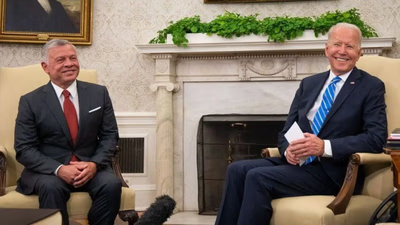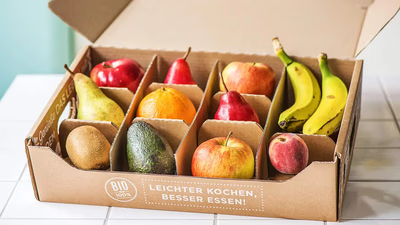
Jordan"s trade landscape: verified exporters and importers thrive. "
Jordan seeks to maintain stability in the Middle East and plays an active role in regional initiatives and dialogues. It has been involved in peace processes and conflict resolutions, particularly regarding the Israeli-Palestinian conflict. Jordan is committed to a two-state solution that ensures the establishment of an independent Palestinian state.Jordan emphasizes its Arab identity and works towards strengthening Arab unity and cooperation. It is an active member of the Arab League and participates in various Arab initiatives, including those related to economic integration, security, and cultural collaboration.
These close relations were strained during the first Gulf War due to Jordan's neutrality and maintaining its relations with Iraq. Jordan is known for its pragmatic foreign policy, which seeks to avoid conflict, and has had good foreign relations with neighboring countries. The Jordanian rulers are now in dire need of the United States and Saudi Arabia to maintain their sovereignty due to their severe geographical dependencies as well as their security constraints. Accordingly, their association with these Southwest Asian actors in forming any kind of coalition does not seem so strange.
Jordan has been directly affected by the influx of refugees, particularly from Syria and Iraq. The country has provided assistance and humanitarian support to refugees while advocating for increased international support to address the refugee crisis. Jordan seeks to attract foreign investment, promote trade, and expand economic ties with other countries. It has pursued economic diplomacy by signing trade agreements, establishing special economic zones, and participating in regional economic initiatives.
Given Jordan's geographical location, trade with Jordan can certainly be important for many Middle Eastern countries as well. Among the most important importers from Jordan are the United States, Iraq, Saudi Arabia, India, and Indonesia. Jordan's most important exports to these countries include textiles, fertilizers, plastics, and their products, aircraft, spacecraft, and parts, edible vegetables, minerals, sulfur salts, lime and cement, nuclear reactors, boilers, phosphate, vegetables, medicine, and potash.
Jordan actively participates in multilateral organizations and forums such as the United Nations (UN), the World Trade Organization (WTO), and the Non-Aligned Movement (NAM). It uses these platforms to promote its interests, engage in diplomatic dialogue, and address global challenges. Jordan receives significant international aid and assistance from various countries and organizations. This support helps address the country's economic challenges, infrastructure development, and the provision of services, particularly in relation to hosting refugees.
Also among the most important exporters of goods to Jordan are China, the United States, Italy, Turkey, and Saudi Arabia. Among the most important Jordanian imports from these countries include crude oil, iron, confiscation, and distribution. Audio, television, nuclear reactors, machinery and vehicles, mechanical equipment, non-train vehicles, mineral oils, pharmaceuticals, woven and crocheted fabrics, natural or cultured pearls, precious metals, and it will also be cereals. It is accompanied by problems such as lack of water, oil, and other mineral resources and heavy reliance on foreign aid. In recent years, Jordan has taken extensive steps to reform its economic structures with the help of its political elite.
Iran sends various goods such as iron and steel products, smiling pistachios, velvet flooring, Exports car parts, sanitary valves, seedless grapes, home water coolers, and food pastes to Jordan. One of the most important sectors in the Jordanian economy is tourism. The geography of this country as well as the relative political calm compared to other abandoned countries located in this region. It has made tourism flourish in Jordan. Tourism in Jordan includes visiting countless historical sites and pristine natural areas and Jordanian cultural and religious attractions.
The most important export items of Jordan are textiles, fertilizers, potash, phosphates, vegetables, and medicine. The United States, Iraq, Saudi Arabia, India, and Indonesia are also major importers of goods from Jordan. Because of the political relations and the fact that the Jordanian authorities are trying to implement the policies dictated by the West and its regional supporters towards Iran. The Jordanian economy is a small economy with limited natural resources. Iran-Jordan relations are affected by the climate, and Jordan's foreign relations are designed based on economic conditions. That is why it is important to get foreign aid, and the country's sponsors dictate their policies.
Jordan has signed peace treaties with neighboring countries, including Israel and Egypt. The peace treaty with Israel, signed in 1994, established diplomatic relations and led to cooperation in areas such as water sharing, trade, and security. The peace treaty with Egypt, signed in 1994, has also fostered bilateral relations and regional stability. Jordan actively participates in international efforts to combat terrorism and extremism. The country has been a target of terrorist attacks in the past and has taken significant measures to enhance its security capabilities, collaborate with international partners, and share intelligence.
-

Jordan"s administrative structure consists of 12 governorates, known as muhafazahs, which reflect the country"s historical and geographical diversity. The capital, Amman, serves as a central hub for administration and commerce due to its strategic location. Each governorate has unique characteristics influenced by geography, history, and population density. For example, Jerash is named after its ancient city known for Roman ruins, while Aqaba is vital for trade due to its access to the Red Sea. Jordan"s population of approximately 10 million is predominantly Arab, and the country operates under a constitutional monarchy led by King Abdullah II. The geopolitical landscape surrounding Jordan has significantly impacted its economy and demographics, particularly due to conflicts in the region. This has made Jordan a refuge for many migrants and refugees from neighboring countries. The distribution of resources and economic activities also plays a crucial role in shaping the administrative divisions; areas with higher populations often have their own governance structures to enhance service delivery. Overall, Jordan"s governorates are not only administrative units but also reflect the complex interplay of historical significance, economic factors, and demographic trends.
-

King Abdullah II has been the monarch of Jordan since February 1999, succeeding his father. His reign has focused on reaffirming Jordan"s diplomatic ties, particularly with Israel and the United States, while also prioritizing economic reforms. Despite the king"s absolute power, the parliament plays a significant role in governance. Jordan"s political landscape has evolved with the emergence of various political parties due to ongoing economic challenges and a growing population. The country operates as a constitutional monarchy, with a constitution established in 1952 that outlines the powers of the king and the parliament. The king holds extensive authority, including appointing judges and declaring war, while the cabinet is accountable to the House of Representatives. Jordan is strategically located in West Asia, bordered by several countries and characterized by its desert climate. The nation is administratively divided into twelve governorates, each overseen by a governor appointed by the king.
This structure allows for localized governance while maintaining central control. "
-

Jordan plays a crucial role in maintaining stability in the Middle East, actively engaging in regional dialogues and peace processes, particularly concerning the Israeli-Palestinian conflict. The country advocates for a two-state solution and emphasizes Arab unity through its membership in the Arab League. Jordan"s pragmatic foreign policy aims to avoid conflict while fostering good relations with neighboring countries. The influx of refugees from Syria and Iraq has significantly impacted Jordan, prompting it to seek international support for humanitarian efforts. Economically, Jordan is focused on attracting foreign investment and expanding trade ties, signing various trade agreements and establishing special economic zones. Key exports include textiles, fertilizers, and pharmaceuticals, while major importers include the United States and Saudi Arabia. Despite its limited natural resources and reliance on foreign aid, Jordan has made strides in economic reform with support from its political elite. Tourism also plays a vital role in the economy due to the country"s historical sites and relative political stability compared to its neighbors.
Jordan"s foreign relations are influenced by economic conditions, particularly regarding its interactions with Iran and other regional players. The country has signed peace treaties with Israel and Egypt to enhance bilateral relations and regional stability while participating in international efforts against terrorism. "
-

Jordan"s economy is grappling with high unemployment and public debt, prompting reforms aimed at fiscal stability. The government is focused on diversifying the economy beyond its limited natural resources, such as phosphates and potash, by developing sectors like tourism, IT, renewable energy, and services. Regional cooperation is essential for expanding water supply and optimizing existing resources. Jordan relies heavily on foreign energy sources, with oil imports primarily from GCC states since 2003. The COVID-19 pandemic has further strained the economy, particularly affecting tourism and retail sectors. In response, the government has implemented stimulus packages and received international financial assistance to support infrastructure development and aid refugees. Despite a declining population growth rate of 2. 8%, Jordan"s official unemployment rate stands at 12.
5%, with unofficial estimates around 30%. While price inflation remains low at 2. 3%, the economy is vulnerable to external shocks and regional instability. Optimistically, Jordan"s potential in solar energy offers opportunities for sustainable development through pollution-free electricity production and seawater desalination projects. Trade agreements with various countries enhance international trade prospects, leveraging Jordan"s strategic location as a bridge between Europe, Asia, and Africa. However, challenges such as water scarcity and energy dependency continue to strain resources.
-

Choosing the right shipping method for cargo to Jordan involves evaluating size, weight, urgency, and budget. Options include air freight, sea freight, and land transport. Proper packaging is crucial to ensure safety during transit, adhering to specific guidelines for the type of goods being shipped. Selecting a reliable freight forwarder is essential; factors such as reputation and customer reviews should be considered. Obtaining quotes and coordinating with the shipping company for pickup or drop-off is necessary. Documentation like commercial invoices and customs declarations must be accurate to comply with regulations. Jordan"s strategic location makes it a key trading hub connecting Asia, Europe, and Africa. Air freight is prioritized due to its efficiency in cargo delivery.
Proper packaging can prevent issues like overload fines at customs; using durable cartons and shock-absorbing materials is recommended. Knowledge of customs laws is vital to avoid complications during shipping. Freight forwarders assist with customs clearance and tracking shipments until they reach their final destination in Jordan. "





